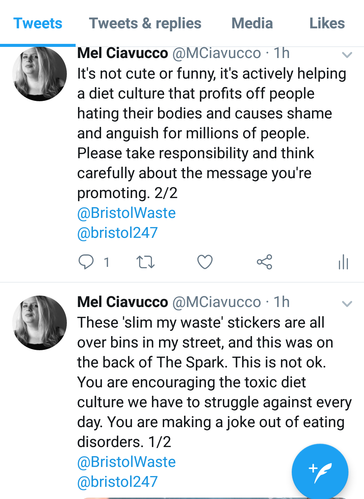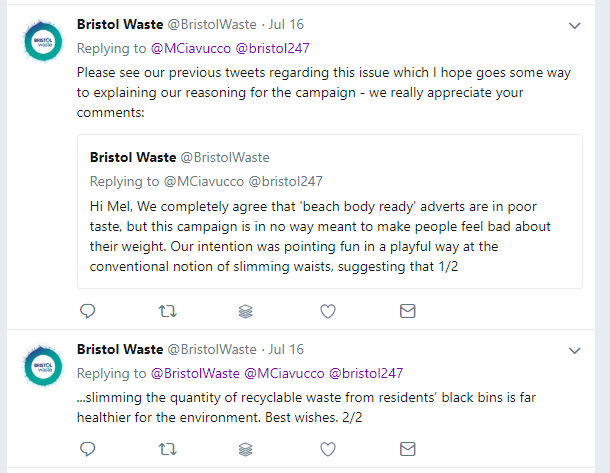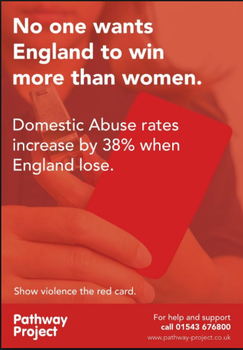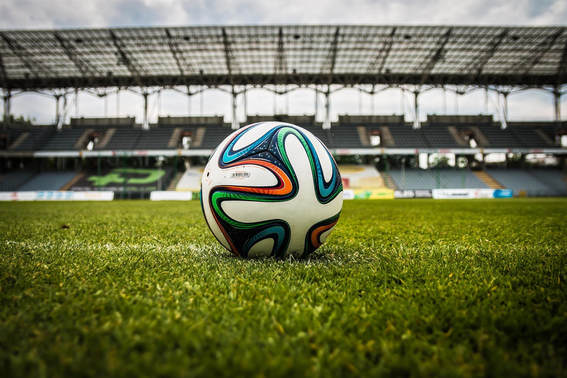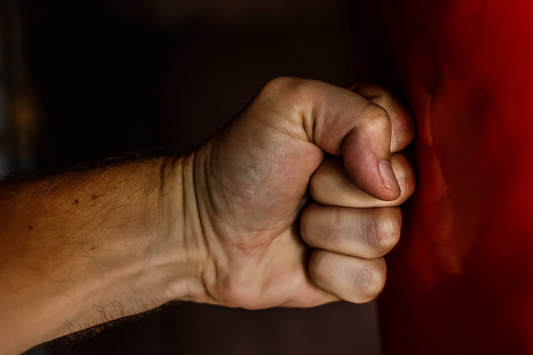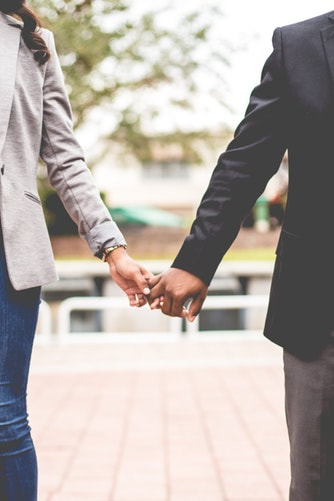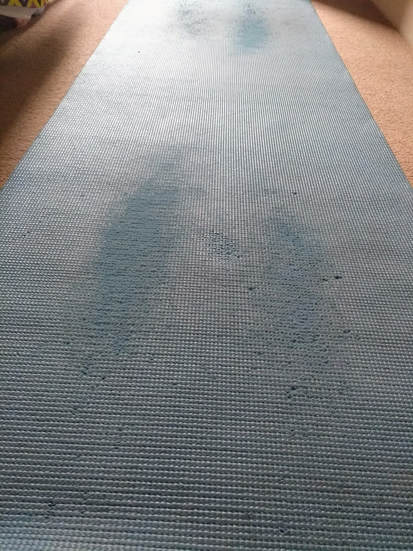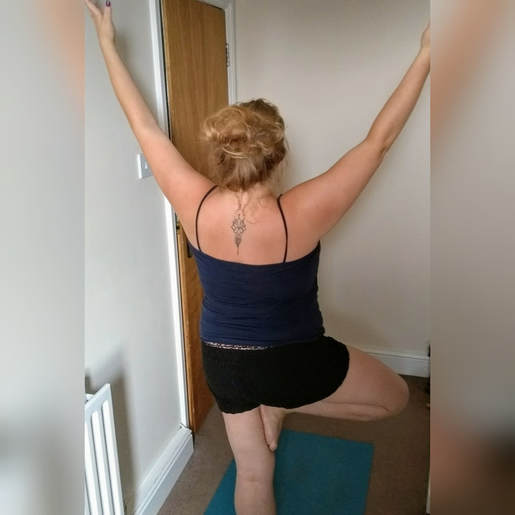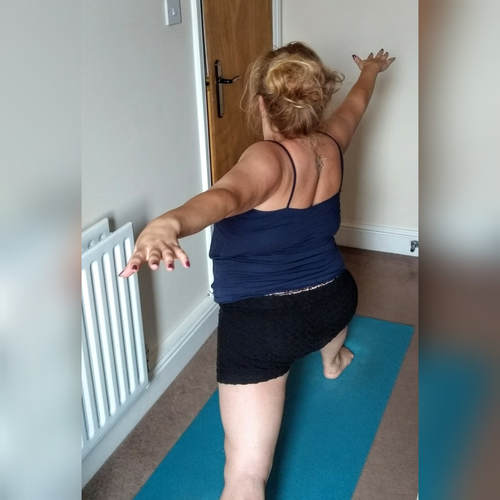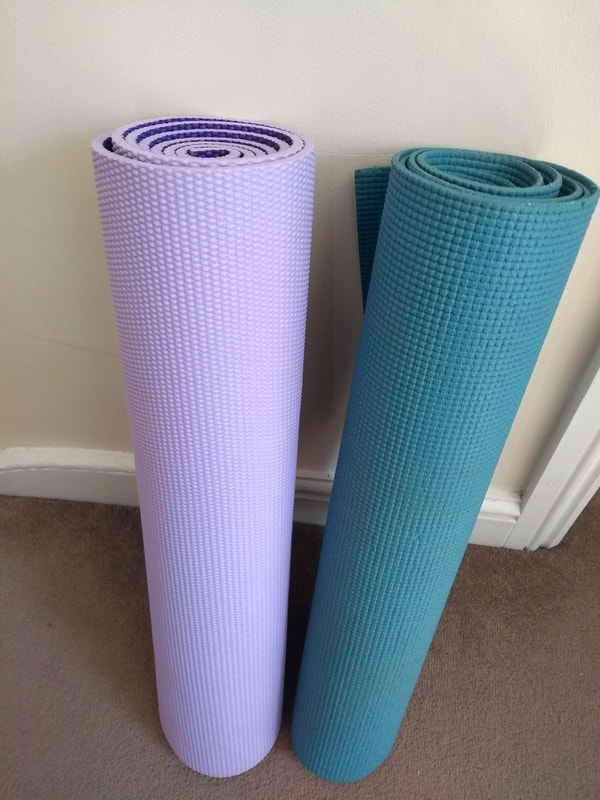|
Bristol Waste are running a “slim my waste” campaign to encourage people to use separate food waste bins. On every wheelie bin, bright yellow stickers read “I’m on a no food diet” and tape measure style “slim my waste” stickers are wrapped around the middle section. A funny play on words? Not for the 1.6 million people affected by eating disorders in the UK. I’m all for food composting, but there must be better ways to do it than supporting toxic diet culture. In a world where one in four 7-year-old girls have tried to lose weight at least once, it’s imperative that companies promote themselves responsibly. It’s reported that 70% of women have felt pressure from TV and magazines to have the perfect body. And it’s not just girls - 60% of people say they feel ashamed of how they look. Imagine having to walk past a line of wheelie bins, all decorated with tape measures, and having the words “slim my waste” stuck in your mind for the rest of the day. After spotting a full page Bristol Waste advert on the back of The Spark (now run by Bristol 247) with the slogan “have you slimmed your waste yet?’ I decided to tweet Bristol Waste. Their reply suggested other people had flagged it up as an issue too, and this was a copy-and-paste response. What they're effectively saying is “that wasn’t what we intended” and dismissing it as a problem because they don't think it affects people. Well, it does. Multiple people are telling them this. It is arrogant, irresponsible and unprofessional to dismiss it.
These bins are yet another thing people have to walk past every day demanding them to be thinner. Britain’s diet industry is worth billions of pounds - they profit off making people feel ashamed of their bodies. They tell us that beauty and health means being thin, which is simply not true. Healthy bodies come in all shapes and sizes. The diet industry need us to hate our bodies and aspire to be ‘perfect’ otherwise they wouldn’t make any money. “Being sold the message of dieting can produce drastic dieting which can lead to eating disorders. Getting rid of dieting could wipe out at least 70% of eating disorders.” Dr Adrienne Key, Royal College of Psychiatrists. Many people live with guilt and shame around food every day. Many struggle to feel worthy as a person because they’re not thin. They’re bombarded with digitally altered images, Slimming World leaflets through their front doors, adverts for gym memberships and diet pills, the voices of bullies on the street or on the bus. Every time they walk past one of these wheelie bins they’ll be reminded of how they’re not good enough. Bristol Waste is only a tiny part of this bigger cultural problem, but that doesn’t mean they can’t do something about it. To say these slogans are just a bit of fun is to completely deny somebody else’s struggle. It’s never just a funny play on words. Slimming world use “syns” to describe treat foods because they know, psychologically, it won’t make any difference how the word is spelled. The word has the same effect in the mind - guilt and shame - the very thing that brings them more money. I appreciate that Bristol Waste are trying to help us recycle and help save the environment. The funny face stickers for the food waste bins are fun and a great idea. However, the unwillingness to recognize the potential damage of the “slim my waist” stickers shows a complete lack of empathy towards another (large) group of people’s perspective. To deny the problem is to sit in a position of privilege and say “well, it doesn’t affect me”. Positive body image is integral to emotional and mental well-being and it’s crucial that companies and advertisers think carefully and take responsibility for their actions to help make a positive change for the future.
0 Comments
Disclaimer: I wrote these blogs a long time ago! I'm leaving them up as I don't want to delete my journey and I think showing growth is important. But it means that some of my views, and some language I use, is now different. Please be mindful of this, and that the content might be triggering, if you choose to read on. TW: Domestic violence and abuse.. The world is football crazy at the moment. I hate football. The other day I was scrolling through Facebook when I saw this… Although the study was only conducted in Lancashire, it wouldn’t surprise me if it’s a snapshot of a problem throughout the whole country. “Incidents of domestic abuse rose by 38 per cent in Lancashire when the England team played and lost and increased by 26 per cent when the England national team played and won or drew compared with days when there was no England match. There was also a carry-over effect, with incidents of domestic abuse 11% higher the day after an England match.” – Lancaster University Here in the UK, we know and accept the actions that come along with football: binge drinking, fighting, chanting, and general obnoxious behaviour. Say “it’s just a game” to someone and you’re in danger of getting your head kicked in. So what makes this aggressive behaviour in football so prevalent? I used to live with some guys who were really into football. It was the first World Cup I’d been involved with, ‘involved’ meaning I didn’t care about the game but I was there for the booze. When England lost, my male friends were fuming. My female friends were disappointed, but my male friends were big balls of rage ready to explode. When we got home, one of them started punching a wall. We dragged him away and calmed him down, and then he started crying. It was like years’ worth of emotion all burst out of once. Looking back now, I see this is so much deeper. I used to question this particular friend a lot when it came to emotion and football. I used to tease him with the whole “it’s just a game” thing but sometimes I was worried he might actually punch me. He said football was the only time he cried. It was the only time it was allowed; it was pathetic for men to cry about anything else. I thought this was the pathetic concept and would take the piss out of him for crying over some guys kicking a ball around. But now I realise, when that’s the only thing you’re allowed to be emotional about, no wonder its important. Men’s Rights Activists are quick to point out that domestic violence victims can be male too, yet they often use this to derail arguments and take feminists down. They don’t seem to see that patriarchal rules and gender expectations have screwed us all over. Little boys are given toy guns and told to be strong. They see their favourite action film stars looking muscly and buff and quickly learn that being a man is about looking physically strong as well as acting strong. The world teaches boys that being kind and having empathy is weak and girly, and that emotions should be ignored, instead of teaching them how to feel and deal with them. So when a game comes along where all this pent-up emotion is allowed to come out (helped by a lot of beer) it literally will burst out. Little girls have masses of expectations put on them in terms being pretty and growing up to meet the harsh expectations of society, but at least we were allowed to cry. Domestic violence numbers are hard to quantify as many cases go unreported due to fear of speaking out. Any person of any gender can be a victim of domestic violence, but in the UK generally the majority are women. “In 2013-15, four times more women than men were killed by their partner/ex-partner” - Office for National Statistics (2016) Compendium – Homicide (average taken over 10 years) “Women experience domestic violence with much more intensity – 89% of people who experience four or more incidents of domestic violence are women” - Walby and Allen (2004) Domestic violence, sexual assault and stalking: Findings from the British Crime Survey It’s hard to use the term ‘toxic masculinity’ without seeming like I hate men. I don’t want to place any blame on men, or football. I want to question why, get to the root of the problem, and take steps towards positive solutions. We can’t just blame football and binge drinking, we have to examine our entire culture and the way we expect boys and girls to behave. We live in a world where people seem to believe gender fits neatly into two boxes and we have dress in a suitable way to prove which box we’re in so other people feel comfortable. People have difficulties understanding non-binary people – they feel the need to assess if they’re ‘really’ a man or a woman underneath. Does having a penis make somebody a man? Does fitting into your stereotypical view of masculinity make them a man? And why do you need to know so badly? It we really treated everybody equally, you wouldn’t need to know what kind of genitalia a person has in order to be able to talk to them like a human being. Football doesn’t turn somebody into a domestic violence perpetrator, but if they have a tendency to be aggressive, it might push them over the edge. We also have to remember that domestic violence isn’t always physical. There is emotional abuse (manipulation, coercive behaviour etc.), financial abuse and verbal abuse. It’s about control, which is why domestic violence is a feminist issue. The reason why I talk in terms of violent men towards women is because this is the most common, although abusive relationships can be between anyone of any gender. Living in a patriarchal society where men have the most power means we’ve all grown up seeing heterosexuality as the norm and male dominance as acceptable. In the media, they often depict domestic violence as a man with balled up fists and a woman cowering. It’s similar to how rapists are traditionally thought of as perverts who linger in dark alleys waiting for a young random girl to pounce on. This is not always the case. In both these instances, the man can often be someone the victim knows and loves. This view of the stereotypical ‘bad man’ often results in women being doubted when they come forward about rape, sexual abuse or domestic violence if the perpetrator doesn’t fit that stereotype. I once saw a couple arguing outside a pub with their three children watching. The man slammed her up against her car and was shouting in her face. The kids seemed surprisingly relaxed, like they’d seen it all before. I rang the police and reported the incident. There was a local shopkeeper who had been standing outside watching it all. I told him the police were coming and he shook his head at me. He told me I shouldn’t have called the police, it was no business of theirs. He said it was a family matter for them to sort out themselves. I was so saddened by his lack of care, but was well aware that his view would be a popular one with many people. Power dynamics in relationships are very complex. We’re influenced by our own identities, the expectations placed on us by our family and friends, and the pressure in the media to be attractive. Then when we're not happy all the time we’re sold the magic pill to make it happen. Many of us are not taught how to talk about emotions in relationships. Our society tells us a failed marriage is shameful, yet if we have a long-term job and moved on we’d put it on our CV and would be proud of it. “Happily ever after” is a lot of pressure. Relationships are hard and we all need a little help sometimes. Communication problems are the biggest issue I’ve seen working for a relationship counselling organisation for over five years. On my journey further into the body positivity world, I’ve joined a lot of Facebook groups. Many of the people are women and are married with children. Some of them have posted some appalling things their husbands have said to them: he doesn’t find her attractive anymore since the “baby weight stayed on” and saying she needs to “tone up a bit”. There were examples of men not supporting their wives when somebody else says something unacceptable about their weight. Many women excuse this behaviour by saying things like “he probably didn’t mean it like that”, “he doesn’t say this kind of stuff all the time”, “he was just in a bad mood”, “he was drunk”. In a similar way after a football game there may be the same excuses: “he was just upset because his team didn’t win”, “he was drunk”, “he’s not normally like this” and the saddest one “he’ll change”. Some people wonder why women stay with men who treat them this badly. I’m guessing many of these people have been lucky; they’ve maybe never been involved in any kind of domestic violence situation themselves and don’t understand the complexity of problems around controlling relationships. This view – of “why doesn’t she just leave?” places the focus on the woman having to do something about it, instead of challenging the behaviour of the man. This is also known as victim blaming. For me, being overweight meant that I always had to be on a diet because I thought I would only get a man if I was thin. When I didn’t lose weight, I realised I would have to settle for any guy who showed any interest - he would be the best I could get. Nobody else would ever like me, so I’d have to do whatever it takes to keep him. Many women stay with men who treat them badly for this reason – they’re scared they’ll never find anyone else and are terrified of being alone because society has told them they’re not good enough. Some women are also scared to leave in case their partner physically hurts them. Other women are bribed into staying because the man has control of their bank account. Many women feel it’s their own fault and think they deserve to be treated this way. There are literally millions of cases and reasons, often tied into complex mental health difficulties too. So next time you think about saying “she can do better” or “she should just leave” then please think again. These women don’t need to change, the culture needs to change. Our relationship ideals are strict and unrealistic, mainly from the impact of fairy tales and more recently, films. The message is: find “the one”, settle down and then be happy forever. The Fifty Shades saga is meant to be a bit of kinky fun but in fact is about a relationship involving two very messed up people - a young naive woman and an older, controlling, privileged, coercive man. These films are released on Valentine’s Day and celebrated as romantic. Everyone swoons over the alpha male, who seems to be a psychotic stalker. These films make light of terrible behaviour. It tells women that putting up with bad behaviour will pay off. This is another reason why women stay in abusive relationships, because they don’t realise it’s abusive – the bad behaviour has been normalised in our society. Domestic violence is a huge cultural problem which we can only hope to start chipping away at by teaching young people that it’s okay to be different. That they’re just as important as everyone else no matter what their shape, size, gender, sexuality or skin colour. It’s okay for people not to fit into the mould of being a boy or girl, it’s okay for boys to cry, and it’s okay to ask for help. We can’t pretend that emotions don’t exist – we’re human, we all have them. We need to be equipped with the tools when we’re younger to know how to deal with our emotions so that it doesn’t get stored up and come bursting out because of a football game. Freephone 24-Hour National Domestic Violence Helpline: 0808 2000 247 - Refuge TIGER (Teaching Individuals Gender Equality and Respect) For Relationship help: https://www.relate.org.uk/relationship-help Disclaimer: I wrote these blogs a long time ago! I'm leaving them up as I don't want to delete my journey and I think showing growth is important. But it means that some of my views, and some language I use, is now different. Please be mindful of this, and that the content might be triggering, if you choose to read on. I just bought a new yoga mat. Sounds like a pretty average thing, but not for me. I love my old yoga mat so much, I refused to get a new one for a long time. It has been on such a journey with me – a physical and emotional journey. But it got so worn down it was as if I was just doing yoga on the floor. Bits were coming off and sticking to me. I had to accept it was time for a new mat. My body positivity path is a long, ongoing one.I struggled a lot with exercise as a kid. I had asthma which made running hard. I was always ridiculed for coming last in cross-country, even by the teachers. I had a PE teacher who spent more time checking our polo T-shirts were tucked into our gym pants - yes, actual gym pants - basically underwear. Shorts were not allowed. Girls were not allowed to wear bras. Seriously. Then he would check we were sitting up perfectly straight and if we weren’t we had to hang off the climbing frame for about 20 minutes. All the popular, happy kids were sporty people. I felt like I would never amount to anything because I wasn’t sporty, because I was fat. All of this made me scared to go to fitness classes as I got older, though I did anyway because I knew I needed to. I always knew I had to be striving to lose weight. All the women I’d known around me growing up were on diets (but the men, not so much). I thought I’d only ever be happy if I was thin. I thought I’d only ever be respected, be loved and be successful if I lost weight. I realise now that it’s all bullshit. The more I’ve learnt about body positivity and feminism, the more I’ve realised that we live in a world which profits from us hating our bodies. If we all loved ourselves, a lot of businesses wouldn’t survive. The world is full of hypocrisies. We’re sold junk food at the same time as being sold dieting products and gym memberships. It’s almost like they’re working together to keep us in the cycle of shame – selling us stuff to feed us up, then telling us we’re too fat and selling us the miraculous cure. I decided I was not going to buy into it anymore. Apart from my yoga mat! Granted, I did buy that but I don’t plan on buying another one for a really long time. I've had my old yoga mat for over six years.I bought it in India, where I attempted to throw myself into yoga. I’d dabbled in the past, learning from home. I realise now I was probably too scared to go to classes. What if I was the fattest in the class? What if I couldn’t keep up? What if everyone laughed at me? I realised the only way I would find out would be to try it. Sometimes we don’t get anywhere in life unless we push ourselves out of our comfort zones and take that leap into something scary. I went to a variety of different classes in India, but I struggled because I’d been unwell and I was very weak. It was just too hot and I felt like I wasn’t good enough. But I knew that yoga is not competition, there are no judgements and all that malarkey. So I did what I knew I had to do – I just kept going. When I got back to the UK I found a regular class in which I felt comfortable. It was a Hatha class that was beginner friendly. I still had a lot of niggling thoughts telling me that I wasn’t good enough, but I pushed on. I did that class for a couple of years until the teacher left in the class was replaced with a Vinyasa flow class. I’d always been too scared to do Vinyasa or Ashtanga because they are strong practices. Again, I was worried I wouldn’t be able to keep up. So I reminded myself… Comfort Zone. Out. Now. So I gave it a go and I’ve been doing that Vinyasa class ever since. I’ve now even started Ashtanga too and feel like I’ve conquered my fear! I’m not very good at stopping and looking at how far I’ve come. I need to keep trying to appreciate myself and keep practising as part of my body positivity and self-esteem quest. So, buying a new yoga mat and ending my journey with the old one seems like a good opportunity to stop and look at how far I’ve come. When I started doing yoga my arms would shake in downward dog. I was always stuck in my negative thoughts throughout the classes, worried that people were looking at me, judging me, which meant I wasn’t able to let go feel what was going on in my body. It may have taken years to get to the point where I don’t worry so much about what I look like, and where my arms don’t shake so much, but that’s my journey and I should be proud of it. I’ll still keep my old mat of course. But part of me is excited to use my new one! I’ll probably slip all over place on it at first until it gets nice and grubby like the old one (that’s what makes a yoga mat really great!). My old mat has followed me on such a journey, but I’m excited for the journey I'm about to go on with the new one.
|
Categories
All
Archives
June 2024
|

